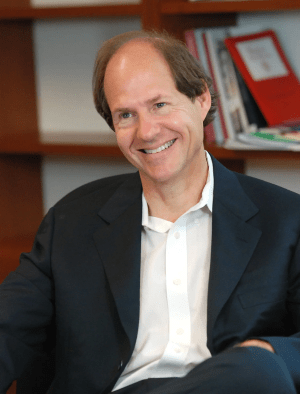Cass Sunstein on removing ‘sludge’ from the gears of city hall

At a moment when the U.S. federal government is making huge investments in infrastructure and climate, there’s been a lot of discussion about how cities have become too rigid, rule-bound, and process-focused to effectively adapt and address the pressing challenges of today.
Cass Sunstein sees a similar problem playing out in the day-to-day interactions and transactions local governments have with their residents. In his 2022 book, he uses the term “sludge” for the many hurdles governments put in the way of people accessing the services they need and are entitled to, causing many to simply give up. Reducing sludge in the system, he argues, saves people time, spurs economic growth, and restores human dignity.
Sunstein’s work is well known to city innovators. His 2008 book with Richard Thaler, Nudge, introduced the power of using behavioral science to encourage people to make better choices and inspired several cities to create their own “nudge units" to lead the work.
Sunstein is the founder and director of the Program on Behavioral Economics and Public Policy at Harvard Law School and served as President Obama’s Administrator of the White House Office of Information and Regulatory Affairs. We spoke with him about what city leaders need to know to combat sludge at the local level.
Sludge comes in many forms and is everywhere in government.
Sludge often comes from a well-meaning place—trying to prevent fraud, for example—but it often results in administrative burdens or frictions that prevent people from getting what they need to make their lives go better.
“It might be that it takes two months to get a permit or a license to do something,” he says. “It might be that there’s in-person interview requirements for a program but you have three kids at home and going somewhere is a real burden. It might be that there's a 20-page form that people don't understand and they give up. It might be that people have depression or anxiety and the sludge in the program makes them more anxious or more depressed. There’s a cruelty to it. And it’s soluble.”
In the book, Sunstein cites rapid reforms adopted during the COVID-19 pandemic as an example of how governments can tackle these problems. Practically overnight, agencies made it easier for people to access food benefits, income supports, telehealth, and other services, waging an impromptu “war on sludge.”
There are lots of ways to get rid of sludge.
When asked how local governments can make progress, Sunstein ticks off an immediate to-do list: “First, use electronic rather than paper filing. Second, use electronic rather than in-person interview requirements. Third, require annual reporting rather than quarterly reporting. Fourth, require renewals every 580 days rather than every 120 days. Fifth, have people answer three questions rather than 40 questions. Sixth, have them answer no questions rather than three questions—because they’re automatically enrolled. Seventh, pre-populate forms—so when you go to renew your dog license, we know your dog's name, age, gender, and it goes like that.”
Sunstein says it’s imperative that as cities add new requirements to receive benefits or services, they look at what others can be removed. You don’t want people getting benefits they’re not entitled to. But you also want it to be as easy as possible for those who are eligible for benefits to get them.
One example he cites in his book is West Sacramento, Calif., which has begun automatically admitting high school graduates to the local community college—and offering them a $200 scholarship—making it as simple to go from high school to college as it is to progress from grade to grade.
Digital transformation is a powerful tool, not a cure all.
While digital tools can help clear administrative hurdles, Sunstein says tech should only be one part of a broader strategy. He cautions that digital tools done wrong can actually add sludge to the system. “You can have a world that's digitally transformed that's a nightmare where, if you forget your grandparent’s middle name, the system is going to be very unhappy with you,” he says.
It's easy to encounter the same pitfalls in a digital world as in a non-digital one, he says. One way to address them is to ensure any new policy includes deliberate steps to simplify underlying processes. Another is to make sure changes in process come with corresponding changes in resources. For example, if a city no longer requires residents to show up in person to get a license, it should also make sure there’s sufficient staffing that it doesn’t take weeks or months for the license to be delivered.
Mayors need to make sludge reduction a priority.
Getting rid of the burdens that may inhibit access to programs should be on every mayor’s priority list, Sunstein says. One place to start is by conducting regular “sludge audits” to take stock of just how much administrative friction is getting in residents’ way and assessing whether those burdens are excessive.
He also thinks that, just as many governments have set up nudge units, it’s a good idea to consider creating dedicated sludge reduction teams. Once they’ve done that, “the leadership should ask for three initiatives that will make a meaningful difference in people's lives to be named within a month, and executed within 365 days.”
Reducing sludge, Sunstein says, is something residents will notice and appreciate. “The idea that a locality should make a sustained effort to reduce administrative burdens,” he says, “is thrilling from the standpoint of residents who are struggling, often in ways the city never intended.”


